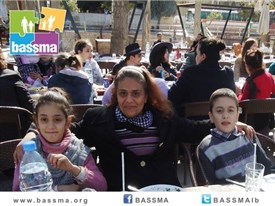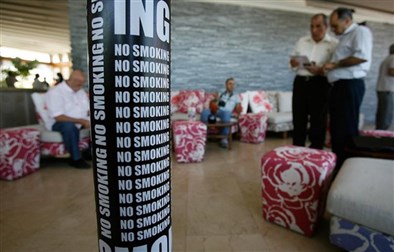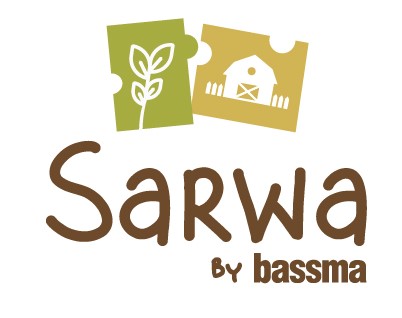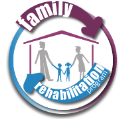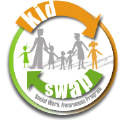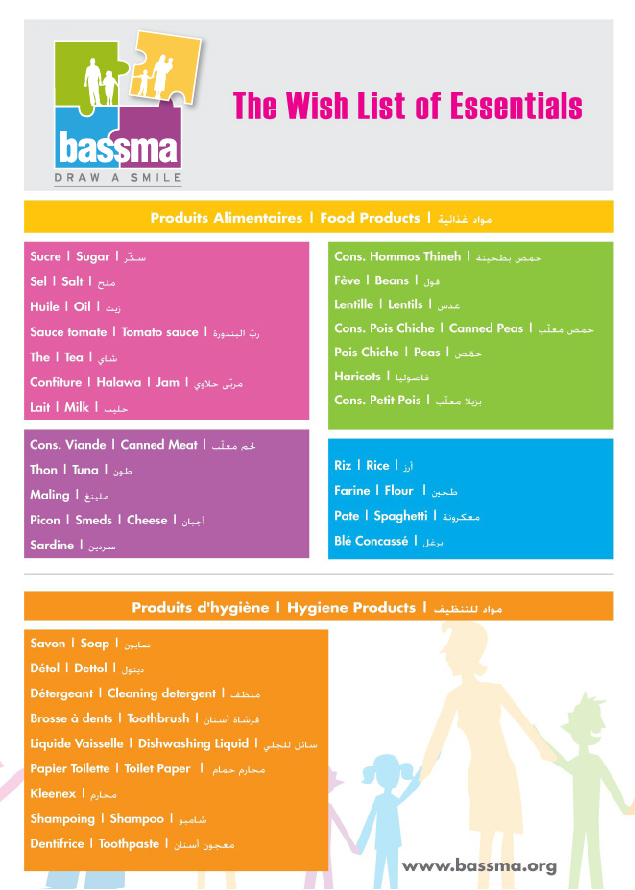source: www.english.al-akhbar.com
When the law banning smoking in enclosed public spaces passed, some Lebanese wondered if it was a priority. Smokers and business-owners bet that the law would not even be implemented. But it did not occur to anyone that the courts would spearhead the effort to render it ineffective.
“We now have a law against hijacking...Law 174 prohibits the hijacking of 10 Lebanese lives everyday.” This is how activists described the smoking ban the day it was approved by the Lebanese parliament in September 2011, after seven years of legal wrangling. Today we witness a different kind of hijacking, a hijacking of the law itself.
Efforts to cripple the smoking ban – spurred and supported by international tobacco companies – began from day one in Lebanese courts.
After Al-Akhbar revealed a controversial Justice Ministry decision to permit cigarette and smoking ads in the corridors of the free market at the Rafik Hariri International Airport, an unofficial count revealed that Lebanese courts issued judgements in only about half of the police reports involving violations of the smoking ban.
With the exception of the Metn and Keserwan courts, all other Lebanese courts did not bother to issue verdicts in smoking ban cases. One can count the actual verdicts issued on both hands. A quick examination of the actual verdicts issued by Beirut courts indicates that they violated Article 17 of the law.
Furthermore, in many court verdicts, the fine imposed by the ban was reduced to less than 10 percent of the minimum amount stipulated. Although the legislator did give the judge discretionary authority to estimate the amount of the fine depending on each case, the law set a minimum and a maximum fine. What was the result?
Al-Akhbar obtained a chart prepared by an official Lebanese agency based on a census from all Lebanese court registries, excluding Tripoli due to security conditions, and Aley due to the court registry’s refusal to cooperate.
According to the chart, Beirut’s court registry received 222 police reports against smoking ban violators. Most were issued against owners of tourist establishments that offered their clientele hookahs, even though the ban has been in effect since 3 September 2012.
Out of the 222 cases, verdicts were issued in only eight. The judges imposed a fine of $66 in four cases, while the fines in the remaining cases ranged between $199 to $331. The courts in other areas did not fare better.
Yet the courts of Keserwan and Metn were apparently the only courts that stuck to the law. According to the chart, the Keserwan court received 123 reports in which verdicts were issued in all of them with an average fine of $993. In Metn, the court received 128 reports and issued 85 verdicts with a fine of $993 and 30 verdicts with a fine of $1,986, while 13 reports are still pending.
Justice Minister Shakib Qortbawi confirmed to Al-Akhbar that he examined the chart, and pointed out that he sent an official letter to the judges through the Supreme Judicial Council two weeks ago, emphasizing the need to strictly enforce the provisions of the anti-smoking law.
The security forces tasked with enforcing the smoking ban include: Internal Security Forces, the tourist police, controllers at the Consumer Protection Directorate, and controllers from the health ministry.
Examining the police force’s records a year after the law passed, shows they filed no less than 500 reports against establishments and individuals who broke the law.
According to the tourism ministry, until June 24, the tourist police force issued 75 reports. The head of the health ministry’s anti-smoking program, Fadi Sinan, stressed that the health ministry’s controllers are charged with enforcing the law at healthcare institutions. It is important to note however that the health ministry’s reports notebook has never been used. As for the Consumer Protection Directorate, it is as though it does not exist.
image: Al-Akhbar/Marwan Tahtah

